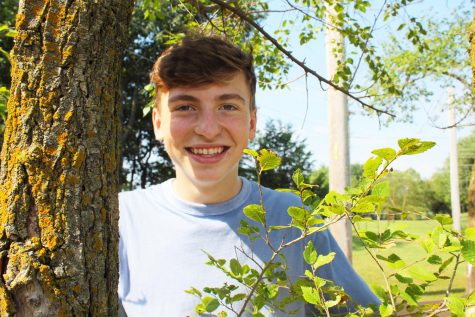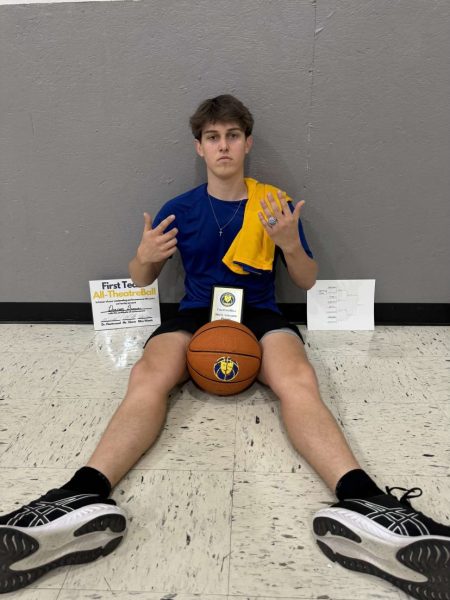Focus
With an abundance of distractions, finding the ability to focus in stressful times is a skill many individuals lack. Though focusing on one task at a time can improve well-being and help lower stress, it’s not always that simple.
Carrie Stormzand, the junior counselor at Nixa High School, said she believes it can be easy to get overwhelmed due to one’s own personal aspirations.
“In general we are always taking on more … projects and more tasks,” Stormzand said. “Many of us are achievers and say yes quickly to something, and in reality, we need to practice the pause and truly assess and evaluate prioritizing.”
Prioritization can be a hard concept for students to grasp. Different opportunities, activities and varieties of work can make it difficult to hone in on one thing at a time.
“Most people have some struggles when it comes to focusing and getting things done,” Stormzand said “A primary reason for this is distractions and trying to take on too many tasks at once. In today’s world of constant information and technology always by our side, we tend to think we are great [at] multitasking, however, it’s really quite the opposite.”
It’s not uncommon to see the effects of technology as a large hindrance in focus. Social media and other distracting features can play a large role.
“Social media and phones [are] such a bittersweet thing,” Stormzand said. “ It’s almost a distraction for some students to be worrying about their phone … or social media when it’s not near.”
With such distractions, it can be almost impossible to truly achieve and prioritize work efficiently. However, it’s not impossible with the right wellness concepts and time management.
“Breathing techniques, breaks and exercise are key,” Stormzand said. “[An individual needs to go] back to the basics of wellbeing when stress levels are high. Healthy eating and a good night’s rest [are more examples]. Habits that tend to slip in stressful times actually make things worse. Taking a break and getting some fresh air can actually do wonders and reset your brain to regain focus.”
Slowing down and taking time to do wellness checks can be beneficial to one’s overall well-being and mental health. It can also aid in reducing overall stress.
“[Stress is] not too harmful unless it persists and impacts other areas or relationships in your life,” Stormzand said.[It] is a part of life for … students, teachers and all humans. Practicing healthy habits and creating systems of accountability will help create more of a calm environment. I recommend keeping a calendar, having deadlines and always a to-do list.”
While simple solutions of practicing well-being may be effective in increasing focus on tasks and goals, for those diagnosed with attention deficit disorders such as ADHD, Attention Deficit Hyperactivity Disorder, it can prove to be a larger struggle.
Dr. Tamara Fusco, founder of the Burrell Behavioral Health’s Youth Focus Clinic, defines Attention Deficit Hyperactive Disorder.
“ADHD … is a neurodevelopmental disorder,” Fusco said. “This disorder is marked by persistent symptoms of inattention, by symptoms of hyperactivity and impulsivity, or by symptoms of all three.”
Symptoms of attention deficit disorders can vary in each individual, though some are more common than others.
“Some symptoms of hyperactivity and impulsivity include being fidgety, unable to stay seated, restlessness, talking excessively or blurting out answers before questions are completed, having difficulty taking turns and interrupting others,” Fusco said.
Due to ADHD being a neurodevelopmental disorder, the behaviors can be more prevalent and seen as distracting.
“It is important to know that ADHD is a true medical diagnosis and that behaviors from it are not a choice, but part of the disorder,” Fusco said. “Unfortunately, some people don’t realize that ADHD behaviors are not willful, and many children with ADHD get in trouble frequently or will be blamed for these behaviors. Just as we would never punish someone for having Diabetes Mellitus or asthma, we should work to help a child with ADHD to modify behaviors and not be punitive.”
Lauren Tiffin, a senior at NHS, has been diagnosed with Attention Deficit Disorder. She explains similar behaviors and symptoms she experiences.
“I have really experienced trouble in focusing on my school work,” Tiffin said. “I tend to focus on anything that isn’t school when I need to be doing my school.”
There are medical practices or therapies that can be utilized in order to better combat the symptoms.
“Treatment for children and adolescents with ADHD has three components,” Fusco said. “First, medication is extremely effective. Certain types of therapy such as parent management training, problem solving skills therapy and organizational skills therapy are helpful. Optimizing the educational environment is helpful through educational plans like an IEP (Individual educational plan) or a 504 plan. Accommodations in school may include sitting in the front of the class away from distracting peers, help with organization such as an assignment notebook, extra time for assignments, testing in a quiet environment and modifying assignments. Using the combination of all three strategies is the best way for a child with ADHD to achieve success.”
The severity of attention deficit symptoms is connected to the individual.
“Personally, I tend to zone out when I should be paying attention.” Tiffin said. “I have trouble focusing on my work, and my disorder has impacted my depression, which is a normal thing.”
Proper medication can help with focus, which will allow an individual to be more suited to accomplish everyday tasks and assignments.
“I began taking [medication] last year and it was my best school year,” Tiffin said. “I was able to focus at school and get my work done, and ended the year with my lowest grade at 96 percent. Having that medication helped me to focus on what I was doing, and helped to clear my mind of all the other things.”
Especially with virtual learning, where classes are not in person, it can be difficult to stay on task.
“Virtual and online schooling during the pandemic has been particularly hard for kids with ADHD,” Fusco said. “Since it is less structured, children with ADHD have difficulty with organization, paying attention and being distracted.”
One must remember that it’s important to slow down and take things at a pace adequate for them to effectively accomplish their goals.
“[ADD] is definitely a hindrance in my academic career,” Tiffin said. “However, there are days that it helps propel me to get my things done and achieve small personal success.”

My name is Braden Dennis and this is my third year in Wingspan. I enjoy taking photos, cheer and having a good time.





![Benjamin Haupt discusses vacation plans over the summer during lunch. He plans on taking a vacation in the coming years. Yes, [I enjoy vacations] Haupt said.](https://nixajournalism.net/wp-content/uploads/2024/05/image0-1-450x600.jpeg)

